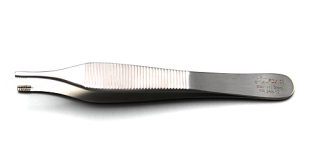Taking Vyvanse (Lisdexamfetamine) without ADD/ADHD? avoid getting caught by knowing how long does Vyvanse stay in your system? tested through amphetamines urine drug test. Used in mental/behavioral disorders like ADHD, Vyvanse is a central nervous system (CNS) stimulant and dextroamphetamine prodrug.
Vyvanse is a psychostimulant medication is used for the treatment of ADHD. ADHD stands for attention-deficit or hyperactivity disorder. Vyvanse is usually considered as a new and improved successor of the drug Adderall. It contains an ingredient known as Lisdexamfetamine which is pharmacologically inactive until metabolized, that’s why being classified as a prodrug.
You have taken Vyvanse, appropriately acquired or otherwise, and find yourself in the position of having to submit to Vyvanse drug test shortly after intake, then it is difficult to say how long does Vyvanse stay in urine. There are different opinions about how long does Vyvanse last.
According to some sources , its effects appear to wane after 14 to 16 hours. Here it’s important to be noted that disappearing its effects does not mean that it had left the body.
There is a reason behind such a wide range of opinions and the reason is the different lifespan of elements used in Vyvanse. For instance, lisdexamfetamine and dextroamphetamine have different elimination half-lives. The half life of Vyvanse is much shorter. It metabolises and excretes more rapidly, on the other hand, the dextroamphetamine takes a fair bit longer and is detectable as an amphetamine in the urine.

The Vyvanse drug test may detect evidence of amphetamines in the urine within 72 hours of intake. However, the most accurate medical opinion on how long do amphetamines stay in your system? the answer is exactly 5 days.
How Long Does Vyvanse Stay in Your System
Some people decide to stop taking Vyvanse for a variety of reasons such as due to its adverse reactions or deleterious long-term effects. If you stopped taking Vyvanse recently, you may be wondering how long it stays in your system before you’re fully detoxified.
Vyvanse is a prescription drug that is generally used to treat attention deficit hyperactivity disorder. It is usually used in people from the age of 6 years old and upwards. It is administered orally in capsule form once daily, preferably in the morning in order to avoid insomnia. Due to following two reasons , it is classified as a class 2 controlled substance:
- It is an amphetamine with a high potential for abuse
- It can be habit-forming if taken over a long period of time.
There are some immediate effects after discontinuing this drug such as you may feel as if you’ve been hit with a brick wall of lethargy, brain fog, and other symptoms like this. In order to determine how long does Vyvanse stay in your system, it is necessary to examine vyvanse half life and elimination.
The elimination half-life of Vyvanse is estimated to be under or almost one hour. It means that after its intake, nearly 50% of an ingested dose will be eliminated from your system in just one hour. But as discussed above, complete excretion of this drug from your system depends on the life span of its elements. For complete systemic clearance of Lisdexamfetamine which is the chief ingredient, you need approximately between 4.3 and 5.5 hours.
Till here, the story is really simple but actually, the full excretion of lisdexamfetamine from your system in under 6 hours doesn’t mean that its metabolites will also have been excreted. It metabolizes to form dextroamphetamine, that has a much longer half-life than Lisdexamfetamine spanning between 9 to 11 hours. This means that dextroamphetamine will remain in your body for between 2.06 days to 2.52 days post-ingestion. Based on the average clearance time of 10.39 hours for dextroamphetamine, experts expect to fully eliminate Vyvanse and its metabolites in under 3 days (2.38 days).
There are a variety of variables that plays a vital role in determining the time duration of Vyvanse stays in your system upon cessation. These variables include:
- Individual factors like person’s age, body mass, renal function, and gastrointestinal pH.
- Food intake / hydration: For instance, taking it with food will decrease its absorption.
- Kidney function: Individuals with renal impairment excrete the drug at a much slower rate compared to those with normative renal function.
- Metabolic rate: Intake of this medicine speeds up a person’s metabolic rate.
- Gastrointestinal / urinary pH: The pH of gastrointestinal (GI) tract affects the bioavailability of dextroamphetamine as well as its absorption.
- Other drugs: Drugs known as inducers of the aforementioned enzymes should expedite metabolism and reduce half-life of dextroamphetamine. However, drugs considered inhibitors may prolong clearance of dextroamphetamine from your system.
 Health & Care Information
Health & Care Information 

